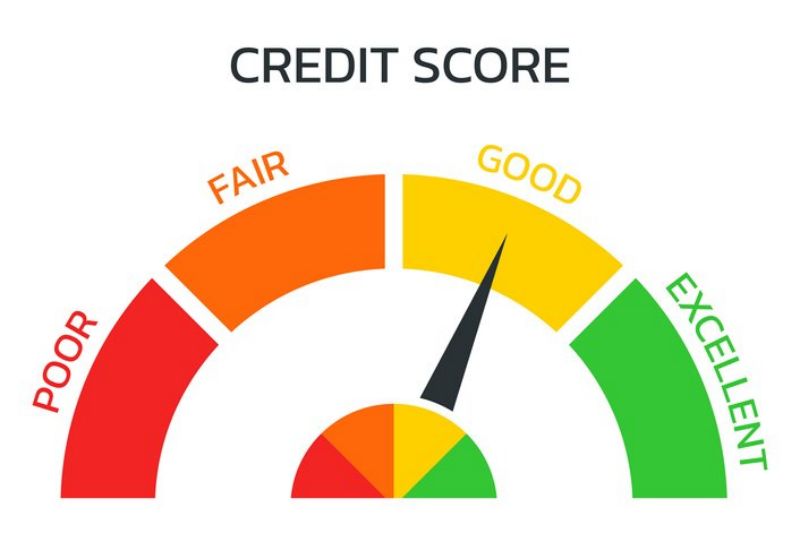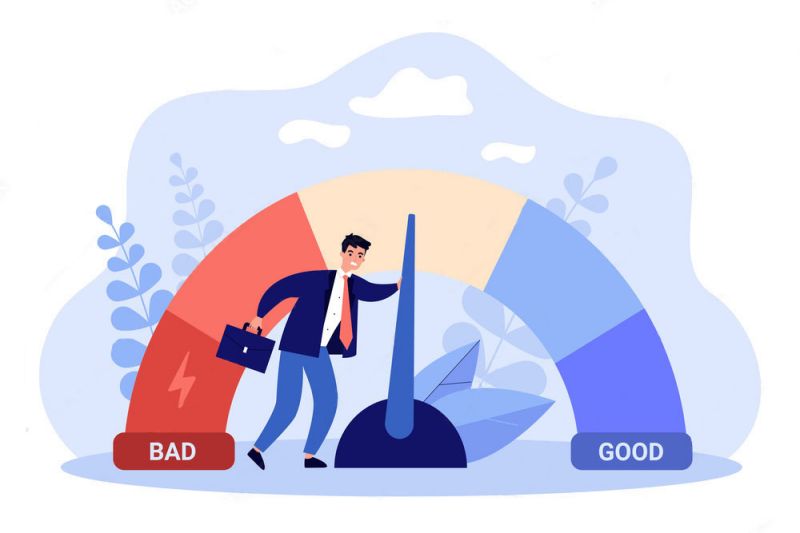A Comprehensive Guide To Building And Maintaining A Healthy Financial Reputation
A healthy financial reputation is key to operating a business successfully. It does not allow you to boost your growth remarkably but give you a competitive edge to support small businesses. You can do so in terms of managing their debts, costs, taxes, and cash flow. In contrast, poor management of finances can lead you to face challenges and prevent you from achieving your goals.
A strong financial base ensures fulfilling the expenses that suddenly pop up. For instance, it can be anything from purchasing new machinery or equipment or coping with sudden repairs. This will help you keep your business operational through thick and thin. Availability of funds allows you to retrieve the opportunity better.
A better financial reputation brings in more and better quality customers. The main reason behind this is they better trust those businesses with strong corporate reputations. Having solid financial or corporate value opens up opportunities to bring in investors, as the investors don’t want to lose their money by investing in a business that does not have any financial worth.
The guide aims to curate information on building and maintaining a solid financial reputation for your business. Sounds exciting? Let’s dive right in to uncover the facts!
Understanding Business Credit Scores and Reports
The business credit score refers to measuring business net worth utilizing different factors. The key factors include available credit, history of payments, or judging the state of bankruptcy. This indicates your ability to conduct or fulfill on-time payments.
The business credit report refers to a report containing all details on the business credit score. The business credit report also contains information on account history, payment trends, and even public records.

Among agencies, the three main ones that offer business credit reports include:
· Dun & Bradstreet (D&B)
· Equifax
· Experian
The reason why D&B is number one is that their report features comprehensive details. Their report covers key areas such as business credit and your interaction with suppliers or vendors. D&B gathers this data from your company profile, industrial record, and public records to compile accurate results.
The scores you are going to get in D&B reports are:
Paydex Score: From 0 to 100, this score indicates how effectively you settled your financial obligation with suppliers or vendors.
Delinquency Predictor Score: A score that determines the ability of a business to settle its bills or face bankruptcy. This takes into account the data of the last 12 months.
Failure Score: It represents the failure of a particular business. Whether a business will get legal relief from creditors or shut down its operation in the coming year.
Supplier Risk Evaluation Rating: It indicates if a particular business keeps delivering products to its suppliers for the duration of 12 months.
D&B rating: The D&B rating heavily relies on the financial situation and public records to indicate the overall business creditworthiness.
Credit Limit Recommendation: This limit is essential for creditors and banks, depending on the business size, industry and payment record.
Equifax earns second place in business credit report catering agencies. Equifax specializes in making business credit reports depending on credit information, public record, bankruptcy data, and company data.
Payment Trend: This record reflects the payment trend that a business has followed over the previous 12 months.
Credit Risk Score indicates the business’s likelihood of facing 90 days of delinquency.
Failure Score: This score indicates how much a business may fail formally or informally over the next 12 years.
Experian is also a reputable business credit report catering agency. It collects crucial data from lenders, suppliers, public records, state governments, credit card agencies, corporate sectors, etc. Experian also takes into account payment habits, transactions history, credit balance, current liens etc. Apart from this, it also considers your company size, time of existence, and industrial classification. Then they propose a score lies from 0 up to 100.
· 0 up to 15 Risky
· 16 up to 30 Medium Risk
· 31 up to 80 Good Credit
· 80 up to 100 Excellent Credit
You can access the above report on catering agencies and get the report on any company/business you want. This will help you better understand the company’s financial reputation. You can effectively finalize your investment decision from that particular company or business.
Creating a Solid Financial Foundation
Several elements contribute to the formation of a solid financial foundation. Find insights on these elements right in the following section:
Maintaining a Separate Legal Entity: A separate legal entity means legally differentiating yourselves from others in the same company. In other words, if someone takes action against you or your business. Then, in this case, your finances will remain safe and separate from the particular lawsuit. In such a scenario, shareholders, investors, partners, or stakeholders enjoy maximum protection. Having a separate legal entity allows you to experience other perks, including:
· Have the ability to take on legal contracts
· You can own a particular property
· The option exists to take legal action against other businesses or individuals

Get a Yourself EIN (Employer Identification Number): The EIN also refers to the Federal Tax Identification Number. It comprises of overall 9 digits. Using this number, you can uncover tax accounts of the specific employer or any business entity. Internal Revenue Service (IRS) identifies the taxpayer using EIN. Getting the EIN will allow you to enjoy multiple perks. Some of the key perks are:
· You can hire and pay your employees legally
· Option exit to open up bank accounts, credit acquisition, and dealing with investments
· It helps you maintain corporate shields
· You can cope with your business taxes and get yourself registered for state taxes
Open Up A Dedicated Business Bank Account: Multiple reasons prove that opening a dedicated business bank account is beneficial. The key reasons for your reference are:
· It provides you with key insights into how your business is performing. You can better judge your income and expenses
· It ensures a better layer of protection and differentiates the personal and business accounts in case of facing the lawsuit
· You can provide proof to the IRS of legit funding against running your business
· A separate business bank account allows you to establish and reflect a better financial reputation. This way, you can win your customers’ trust and convert them into repeat customers.
Building Business Credit
As discussed above, building business credit can help you reap several perks. You cannot deny its importance. You need to take care of the following factors to ensure better business credit building:
· Avoid any missing payments or defaults. Apart from this, clear your payments, debts, and taxes on time
· The amount of credit you have also influence building business credit. Keep it stable and above an optimum level
· Avoid organizational issues in credit settlement with your suppliers or vendors
· Acquire a separate business credit card to enjoy several perks. These include higher credit limits, low-interest rates, and big discounts on timely payments.
Managing Debt Responsibly
The debt can lower your working efficiency and business operations and even stop them. This is possible if you are not going to manage them effectively. Apart from this, you can face poor financial stability and poor credit score if you fail to set up your debts on time.
Avoid High-Interest Debt: The main reason you should avoid this debt is that you need to pay more to settle this debt. You can look for low or no-interest debt as that will aid you better.
Follow Debt Repayment Plans: Set up a monthly, quarterly or yearly schedule to clear your debts. This way, you can monitor and better cope with your debts.
Maintain Higher Debt-to-Equity Ratio: This ratio indicates how a particular business is good at settling its debts. Poor equity ratio informs the vendors, public, and suppliers about your company’s debt-clearing behaviors. This will affect your business in the long run.

Monitoring and Addressing Financial Issues
You cannot boost your business growth or achieve success without monitoring your credit score. Keep an eye on your credit score from time to time. If you experience a change or fall, then look for the following:
· Late payments
· Excessive debt
· Inaccurate Credit reports
After this, deal with the situation and see if your credit score improves. Monitoring and addressing these issues help you establish a stronger financial reputation. You can cope with unexpected situations in a highly effective manner.

Conclusion
Suppose your goal is to achieve long-term stability and success for your company/ business. Then you need to ensure a better financial reputation. You can follow the step-by-step procedure mentioned above to ensure highly reputable financial conditions.
It would help if you deep dive into business credit scores and reports and curate a strong financial foundation. Besides this, managing your debt, building business credit, and monitoring financial issues can show you the right path.
A wealthy business draws more attention from vendors, investors, stakeholders, shareholders, and suppliers. This opens up ways to achieve remarkable success. Practically apply these steps in your business to experience good credit scores and worthiness today.
